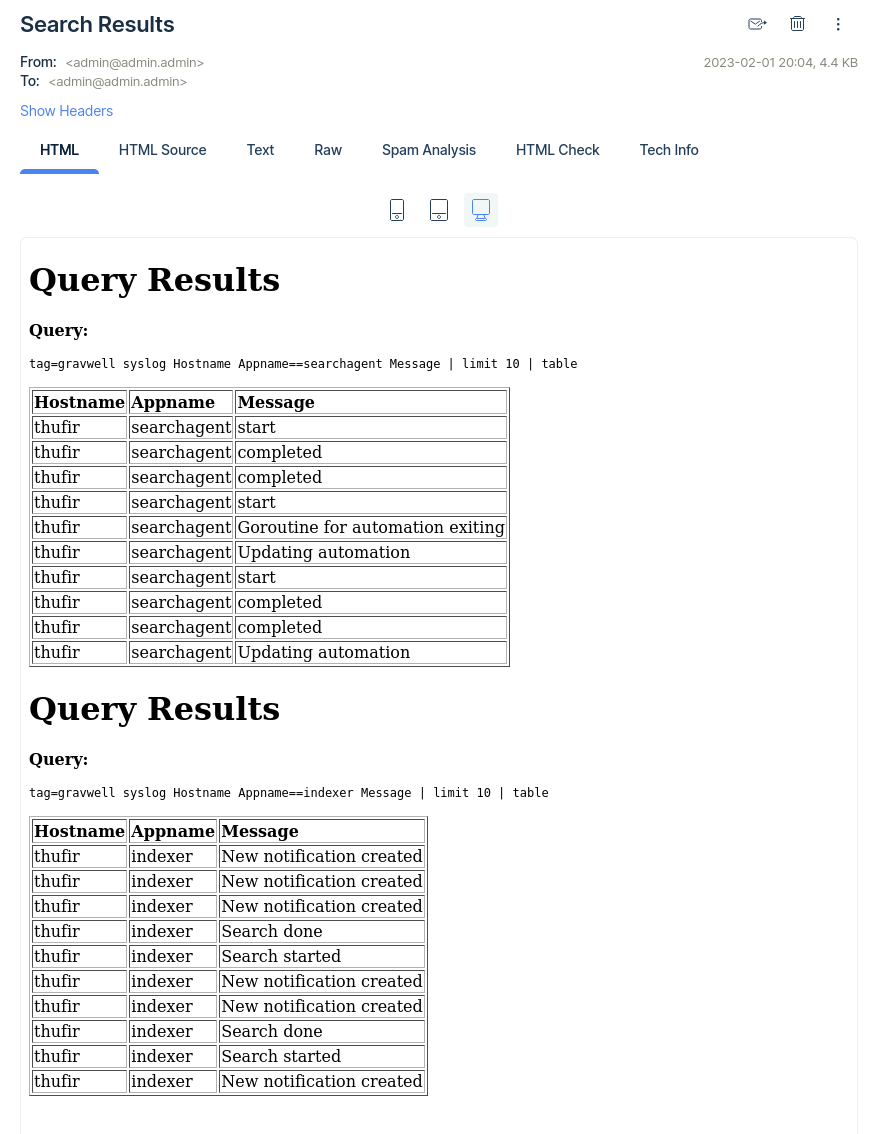HTML Format Node#
This node will attempt to format one or more variables from the payload as HTML, inserting the results back into the payload under different names.
Configuration#
Items, required: One or more pairs of strings. The first string, the key, specifies the name of an existing variable to be formatted. The second string, the value, specifies the new name which will contain the HTML-formatted output.
Output#
The node will create one or more variables in the payload, one for each key-value pair specified in the configuration.
Example#
This example uses the HTML Format node to format the results of two searches as HTML. The Text Template node then combines them using a trivial template, and the Email node sends the results out. The Email node will automatically HTML-format a single query if set as the body of the email, but this example shows how you can generate an HTML message containing multiple search results.
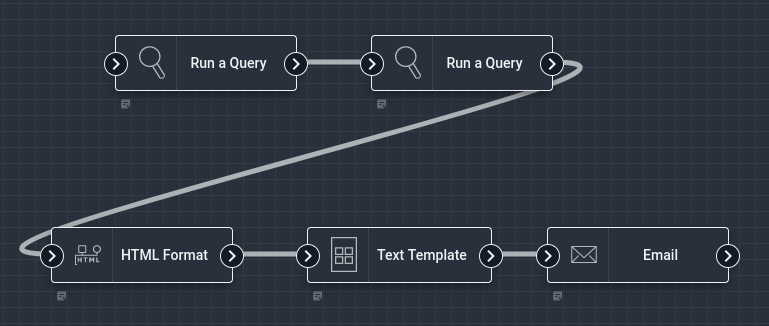
The two Run a Query nodes run the following searches over flow.Interval, outputting the results into variables named search1 and search2, respectively:
tag=gravwell syslog Appname==searchagent Message | limit 10 | table
tag=gravwell syslog Appname==indexer Message | limit 10 | table
The HTML Format node is configured to format search1 into a variable named s1out and search2 into s2out:
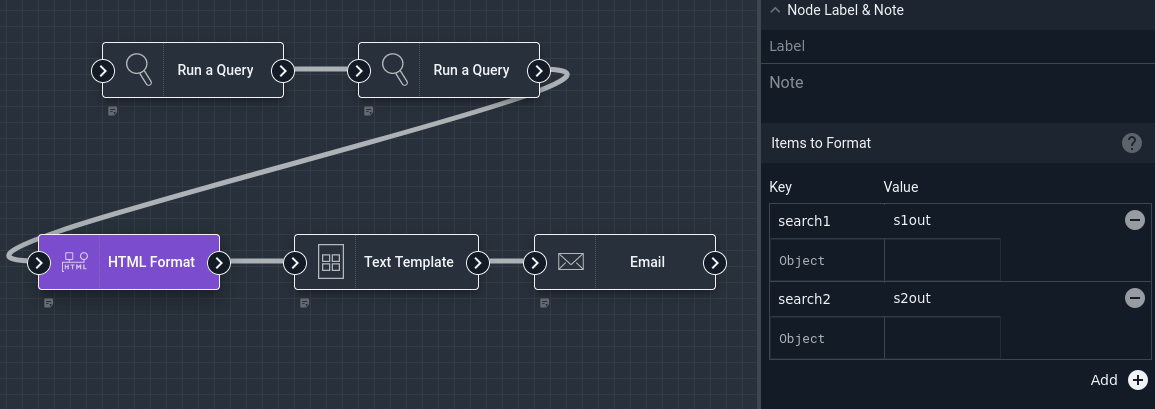
After a debug run, we can verify that the variables have been appropriately set in the payload:
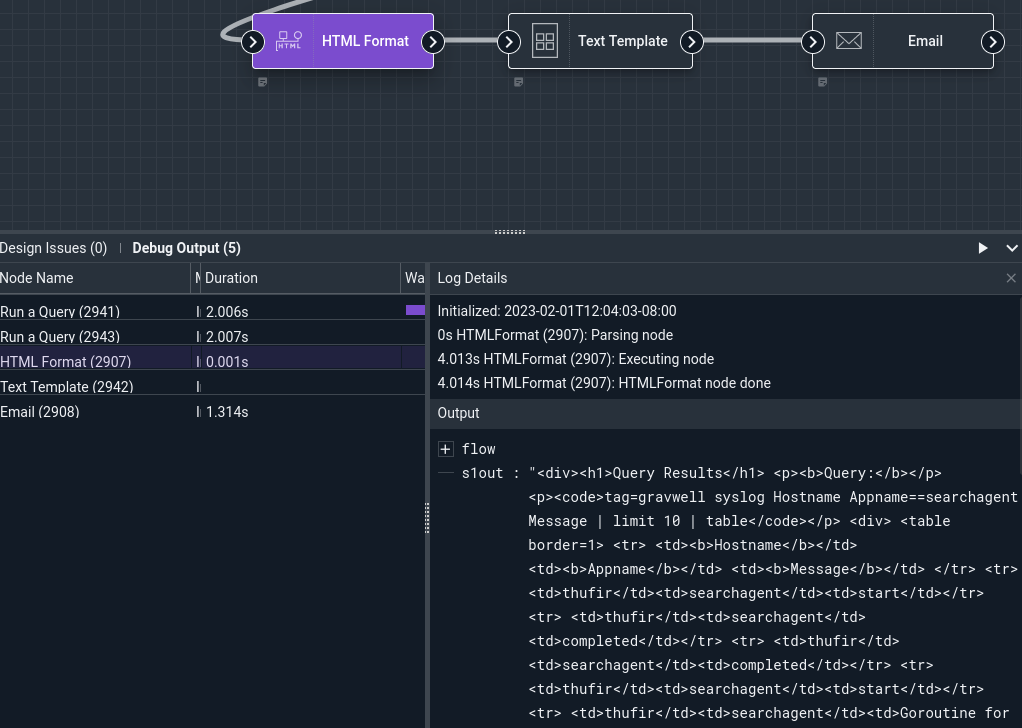
The Text Template node then uses a simple template to join the two results together, placing the results into templateOutput:
<html>
{{.s1out}}
{{.s2out}}
</html>
Last, the Email node uses templateOutput as the Body of the outgoing email.
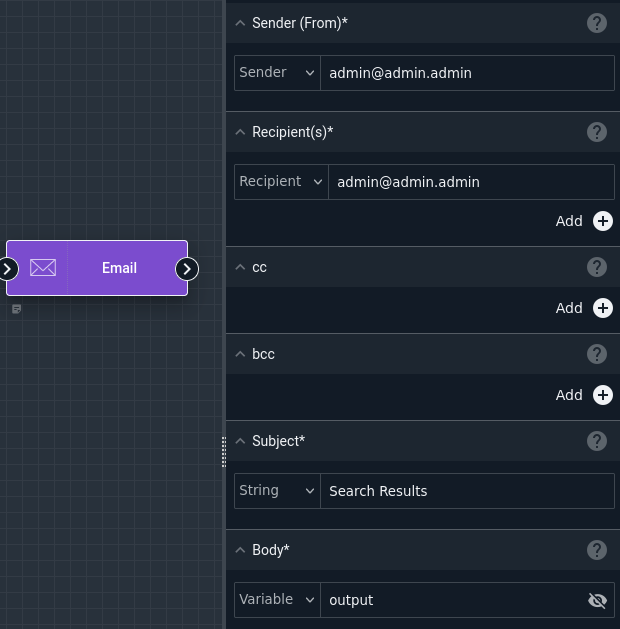
The results look like this:
